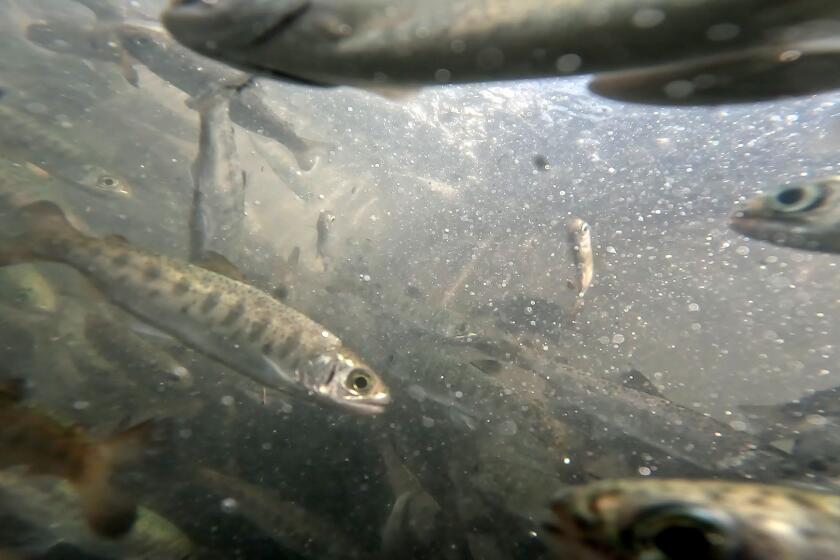Dog handler testifies at court-martial of ex-drill instructor
SAN DIEGO -- Ex-drill instructor Sgt. Jerrod Glass is standing trial in military court for allegedly hitting, slapping and abusing dozens of recruits, but testimony Friday concerned his treatment of canines during a previous stint as a Marine dog handler.
Gunnery Sgt. James Cobb, who was kennel master at the Marine Corps Recruit Depot here when Glass was assistant kennel master, testified that Glass followed one of the cardinal rules of dog-handling: Never hit a dog.
Glass, 25, served as a drill instructor for two months and was relieved of the post during an investigation into his alleged abuse of recruits. If convicted on all counts, he could face 11 years in prison and a dishonorable discharge.
Cobb was called by military defense attorneys to serve as a character witness for Glass. He testified that Glass was a top-notch Marine and set a good example for younger Marines.
But when the lead prosecutor sought to question Cobb about dog-handling rules, the judge, Lt. Col. Jeffrey Meeks, ordered jurors to leave the room.
“Are you trying to argue that he treated his dogs better than his recruits?” Meeks asked in an angry tone.
“Yes,” said Capt. Christian Pappas, the prosecutor.
Meeks, who has repeatedly scolded both prosecutors and defense attorneys during the four-day trial, said he would not allow such an assertion. “The chance of inflaming the jury is too high,” he said.
But when jurors returned, one of them had a written question for Cobb about the rules for training and handling military dogs, which are used for sniffing out explosives and narcotics and sometimes accompany Marines on patrols.
Under questioning by Meeks, Cobb said that, “The thing you can’t do is beat a dog. . . . Correction is held to a minimum.”
Glass is accused of hitting recruits with a flashlight, tent poles and his fists in order to correct their mistakes. Hitting recruits is forbidden by Marine rules.
After his time as a dog handler at the recruit depot, Glass served two tours in the Al Qaim region of Iraq near the Syrian border. When he returned, he attended drill-instructor school and was the honor graduate of his class.
His attorneys argue that as the least experienced of four drill instructors ordered to train platoon 2167 in late 2006, Glass was given the role of disciplinarian, or “kill-hat,” and told to toughen up the platoon, which was thought to be soft.
Gunnery Sgt. Rogerio De Leon, one of the depot’s most experienced drill instructors, testified that it is common for the least experienced drill instructor to be “the guy who instills the discipline in the platoon” by invoking punishment -- called incentive training -- when recruits make mistakes.
But even incentive training has strict guidelines, said De Leon, who was called by the prosecution as an expert witness. For example, recruits in the first weeks of training can be ordered to do push-ups as incentive training for only three minutes at a time, followed by a 30-second break.
Although drill instructors are trained to bellow instructions and criticism at recruits at close range, they are not allowed to strike or verbally abuse them, De Leon said.
“They [the recruits] enlisted in time of war,” De Leon said. “You have to respect that, because you know where they’re going to be in nine months.”
--
More to Read
Start your day right
Sign up for Essential California for news, features and recommendations from the L.A. Times and beyond in your inbox six days a week.
You may occasionally receive promotional content from the Los Angeles Times.






